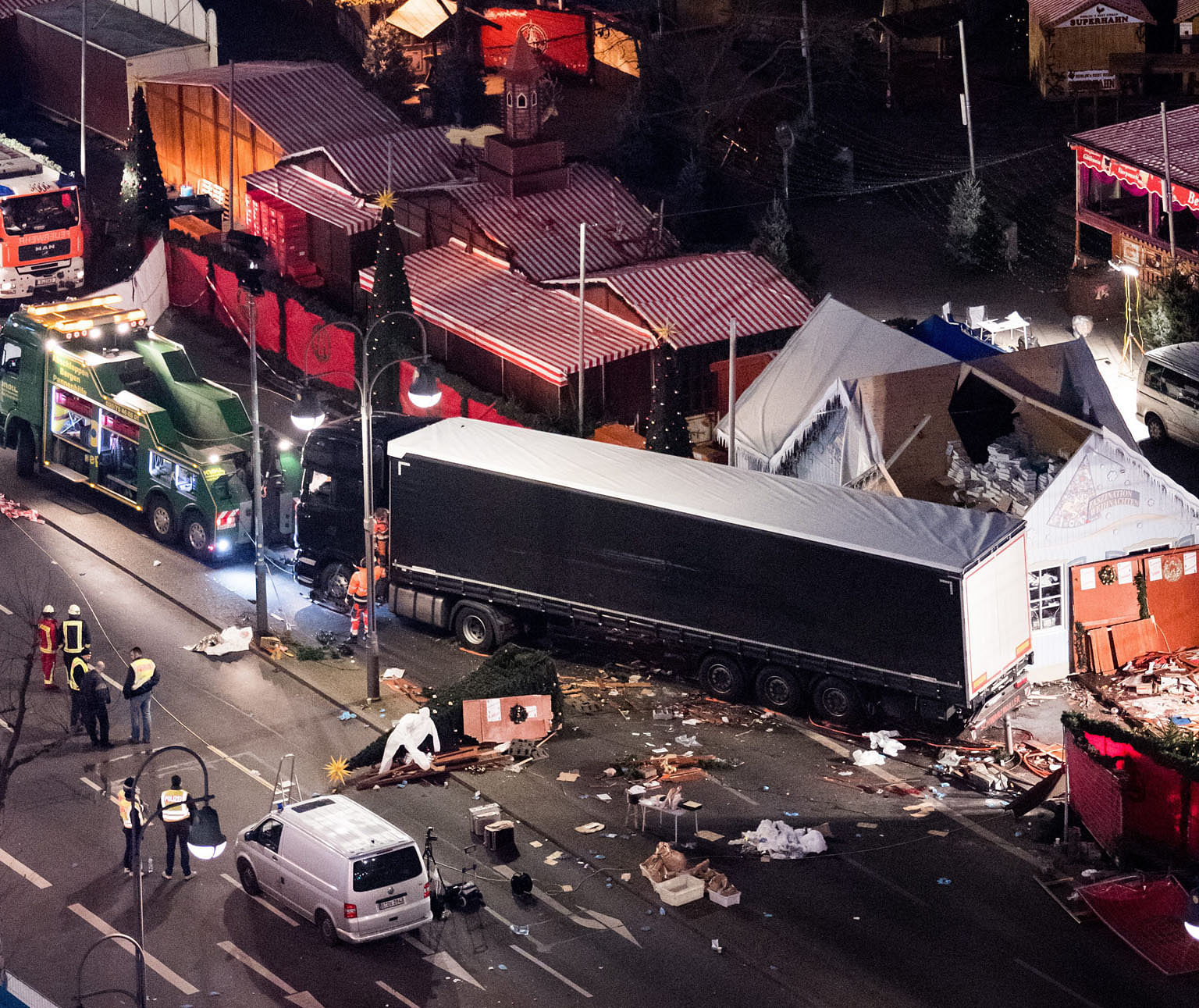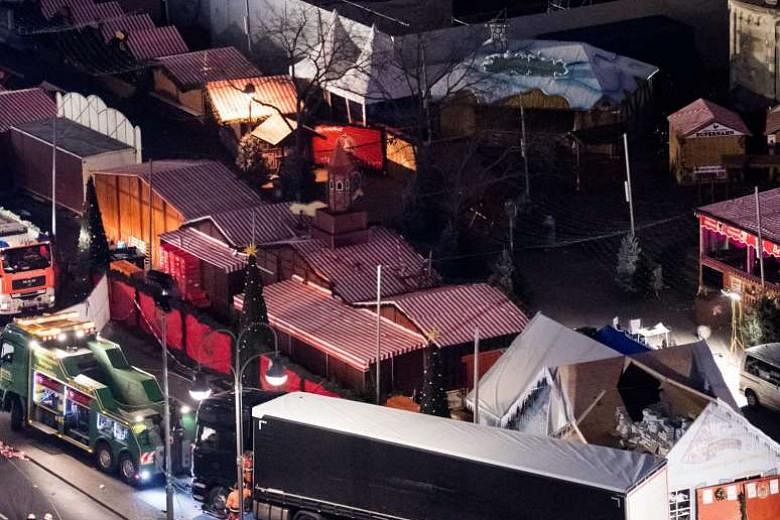Chilling back-to-back attacks in Germany, Turkey and Jordan are befittingly bringing the curtain down on 2016, a year whose hallmark has been the mainstreaming of terrorism on a worldwide scale.
Although each of these incidents has its unique backdrop and perpetrator, taken together they encapsulate the major disturbing trends that have spread global fear and loathing this year - shocking strikes fanned either directly or indirectly by the Islamic State in Iraq and Syria (ISIS), unimpeded atrocities in the war zones of Syria and Iraq, and reactionary right-wing populism and anti-immigrant politics in the West.
Collectively, these four patterns comprise a self-perpetuating matrix of insecurity that reproduces bout after bout of horrific violence. Failure to comprehend the interlinkage of these causes is hampering solutions and extending the brutality that is becoming regularised.
French Prime Minister Manuel Valls's fatalistic remark after the Nice truck attack in July 2016 - "times have changed and we should learn to live with terrorism" - admits a "new normal" where attacks are bound to happen everywhere and nothing can be done to prevent them.
But a determined international community which pays equal attention to all elements of the insecurity matrix can fight back and eventually halt the dreadful saga of violence.
The most prominent factor propelling the wave of killings of innocent people is the vicious ideology of ISIS. In 2016, the territory held by the ISIS "caliphate" shrank from 78,000 sq km to 60,000 sq km. The American government says that 75 per cent of all ISIS combatants in Iraq and Syria have been "liquidated". Yet ISIS has not been defeated, because it is tapping into myriad frustrations and inspiring terrorist blowback.

The same ISIS which is being pummelled on battlefields in the Middle East has claimed that the driver of the truck which rammed into a Christmas market in Berlin was one of its "soldiers" responding to its "appeals to target citizens of coalition countries". ISIS has also taken responsibility for gunmen who went on a rampage and murdered a Canadian and nine others at the Jordanian tourist site of Al-Karak, stating that the attack was part of its campaign against "apostate" regimes and citizens of "crusader" countries that it views as enemies of Islam.
The crazed Turkish policeman who shot the Russian ambassador in an art gallery in Ankara also displayed the trademark symbol of ISIS - the raised salute with the forefinger - and repeated ISIS slogans of avenging the "tyranny" of Russian bombardment of Aleppo in Syria.
While ISIS is on the run in Mosul and Raqqa, it is now a global movement channelling hatred either through its overseas operations arms or simply by example and inspiration. The egregious conditions of civilians being mowed down with impunity in the Syrian war are fanning the flames and rendering the job of propaganda easy for ISIS.
According to ISIS lore, Russians, Americans and Europeans are all - to varying degrees - enabling the alleged acts of barbarism against Sunnis being carried out by Syrian President Bashar al-Assad and his Shi'ite Iranian allies. Nothing fires up a lone wolf terrorist or a locally trained but globally attuned jihadist more than to be told that he has to resist an array of powerful enemies that are jointly butchering Sunnis.
Ending the Syrian war is thus imperative if ISIS-trained or ISIS-influenced terror attacks are to be halted. In 2017, with Mr Donald Trump in the White House and a United States showing unorthodox willingness to cooperate with Mr Vladimir Putin's Russia, chances of a settlement between the Assad regime and non-ISIS anti-government rebels do look reasonable.
Ending the sieges, aerial attacks and urban warfare that have claimed hundreds of thousands of lives in parts of Syria where there is no ISIS presence is an urgent necessity if the global terrorist pandemic is to be weakened.
But this alone will not solve the terrorist crisis. The troubling rise of fascist and far-right populism in America and Europe promises to keep the ISIS and Al-Qaeda narrative of a clash of civilisations going. Christian fundamentalism and white supremacist racism dominated politics in the West in 2016, raising the prospect that even if the war in Syria stops, a culture and identity war will be perpetuated.
Mr Trump's interpretation of the Berlin truck attack as a "global jihad" to "slaughter Christians" - and similar responses from the neo-Nazi Alternative for Germany party, whose popularity is soaring - is pushing moderate and centrist leaders like German Chancellor Angela Merkel into a corner.
Even though only some terrorist attacks in the West have been committed by migrants, the automatic correlation drawn between migrants and terrorism by the far right is now so resonant that any liberal voice for equality and openness to refugees risks instant ridicule.
A dreadful symbiotic relationship has been established among terrorism, reprisal hate crimes by white racists and the raising of barriers in the West against migrants fleeing war and destruction. With more than one million asylum seekers already admitted into Europe owing to Dr Merkel's leadership and initiative, the indiscriminate scapegoating of all migrants is increasing each time there is a terrorist outrage. The more Islamophobia is mainstreamed in the West, the easier it becomes for ISIS to recruit alienated European or American youth for jihadist violence.
How can this vicious cycle be broken? Much will hinge upon crucial elections in France and Germany in 2017. If fascists repeat the American "Trump miracle" in the heart of Europe's two key nations, it will be a huge lift for ISIS, which thrives on a stereotype of Christians as hateful and oppressive foes. Losing Mosul or Raqqa will be bearable for ISIS if it could unleash civil war on European streets.
Ringing in the New Year while being trapped in this frightful insecurity matrix offers nothing hopeful. But we can and must resolve to try to finally close the war in Syria, and to keep faith in humane values despite the provocations of jihadists and racists. Otherwise, 2017 will be a year of redemption for ISIS, not one of defeat.
- The writer is a professor and dean at the Jindal School of International Affairs in Sonipat, India.

